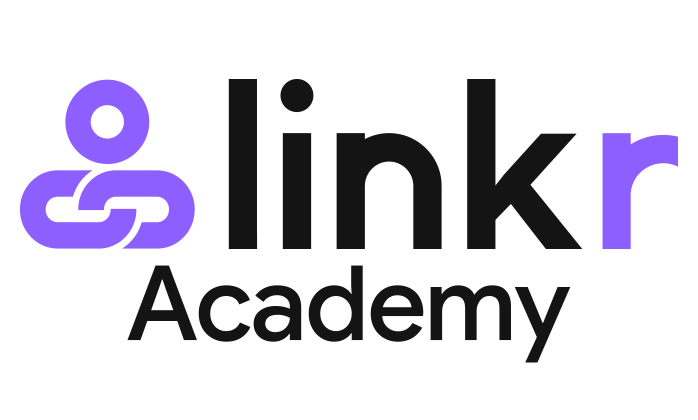How to Select the Right Social Media Platforms for Business: 10 Top Tips
For small businesses, social media is an excellent marketing tool. But not every social media platform is the same. Each has a distinct group of users with various preferences for engaging with content.
How can you decide which platforms are best for your business when there are so many options? Ten suggestions are provided for selecting the best platform.
Concentrate on one platform at a time, get it up and operating, then add another to improve your chances of success.
Understand Why is Social Media Marketing Important for Your Business
Table of Contents
1. Understand your target audience

You must delve past their demographics, tastes, and online behavior to fully comprehend your target audience. Take into account their goals, problems, and motivations. This will make it easier for you to cater your social media marketing initiatives to their wants and interests.
Choose the social media channels where your audience is most engaged and active. Be familiar with the specifics of each platform. For instance, LinkedIn is superior for professional networking and thought leadership while Instagram excels at visual content.
Determine market gaps by examining the strategies of your rivals. In the cluttered social media scene, this will assist you in differentiating yourself and standing out.
2. Define your goal
Establish clear, specific, measurable, achievable, relevant, and time-bound (SMART) goals for your social media marketing plan. Prioritize your objectives and establish a timeline for achieving each one. Your goals will guide all of your efforts going forward, including platform selection and content strategy.
3. Research different social media platforms

Researching different social media platforms is an important step in determining which platforms align best with your business objectives. To get started, familiarize yourself with the various social media platforms available. Some of the most popular platforms include Facebook, Twitter, Instagram, LinkedIn, YouTube, Pinterest, Snapchat, and TikTok.
- Facebook is a great platform for businesses looking to build brand awareness and connect with potential customers.
- Twitter is a great platform for businesses looking to engage with their audience and participate in real-time conversations.
- Instagram is a great platform for businesses looking to showcase their products or services through visual content. LinkedIn is a great platform for businesses looking to build professional relationships and establish themselves as thought leaders in their industry.
- YouTube is a great platform for businesses looking to create and share video content.
- Pinterest is a great platform for businesses in the fashion, beauty, and home decor industries. Snapchat is a great platform for businesses looking to target younger audiences.
- TikTok is a great platform for businesses looking to create short-form video content and engage with a younger audience.
By understanding the unique features, target demographics, and user behaviors of each platform, you can determine which platforms align best with your business objectives. This research will help you create a more effective social media marketing strategy and reach your desired audience.
4. Consider platform relevance

Evaluate the relevance of each platform to your business and industry. Some platforms cater more towards specific industries or content types. For example, Instagram and Pinterest are ideal for visually-driven businesses, while LinkedIn is more suited for professional networking and B2B interactions. Choose platforms that align with your brand and the type of content you plan to share.
Learn How to Create a Social Media Marketing Strategy
5. Assess resource availability
Managing social media platforms requires time, effort, and resources. Consider your available budget, time constraints, and team size. Some platforms may require more frequent updates and active community management. It’s better to excel on a few platforms rather than spreading yourself too thin across many. Assess your resources and choose platforms you can consistently manage and engage with.
6. Leverage social media tool

Social media tools can streamline your social media management and optimize your efforts. These tools help with scheduling and automating posts, monitoring engagement, tracking analytics, and managing multiple accounts from a single dashboard. Consider using tools like Linkr, which offers comprehensive solutions for social media management, sharing multiple links in on Intagram bio, social media post scheduling, influencer marketing, and analytics. Utilizing such tools can save time and enhance your social media performance.
7. Analyze competitors
One effective way to gain insights into which platforms are successful within your industry is to observe your competitors’ social media presence. By analyzing their content, engagement levels, and follower growth, you can learn a lot about what is working and what isn’t. This analysis can also help you identify gaps in your own social media strategy and find new opportunities for engagement. Furthermore, you can use this information to determine which platforms your target audience is already active and engaged on, allowing you to focus your efforts on those channels and maximize your reach.
8. Test and monitor

Start by focusing on a few selected platforms and monitor their performance. Test different content strategies, posting schedules, and engagement techniques. Track your analytics to measure the effectiveness of your efforts and make data-driven decisions. By monitoring and analyzing your results, you can refine your strategy and optimize your presence on the chosen platforms.
9. Stay up-to-date
Social media platforms are constantly evolving, introducing new features and trends. Stay updated with platform changes and adapt your strategy accordingly. Keep an eye on emerging platforms that may be relevant to your target audience and evaluate their potential for inclusion in your social media strategy.
10. Seek professional guidance

If you find yourself overwhelmed or lacking expertise in social media marketing, consider seeking professional guidance. Digital marketing agencies and consultants can provide valuable insights and expertise to help you select the right platforms and develop a successful social media strategy.
In conclusion
Selecting the right social media platforms for your business requires careful consideration of your target audience, goals, available resources, and platform features.
By conducting thorough research, leveraging social media tools like Linkr, and starting with a focused approach, you can build a strong presence on the platforms that align with your brand and marketing objectives. Remember, social media marketing is an ongoing process, so be prepared to adapt and evolve your strategy as the platforms and consumer behavior evolve too.
Read more:
Digital Marketing vs Social Media Marketing: Why not both?
Mastering Social Media Engagement: 7 Strategies for Creators and Influencers




